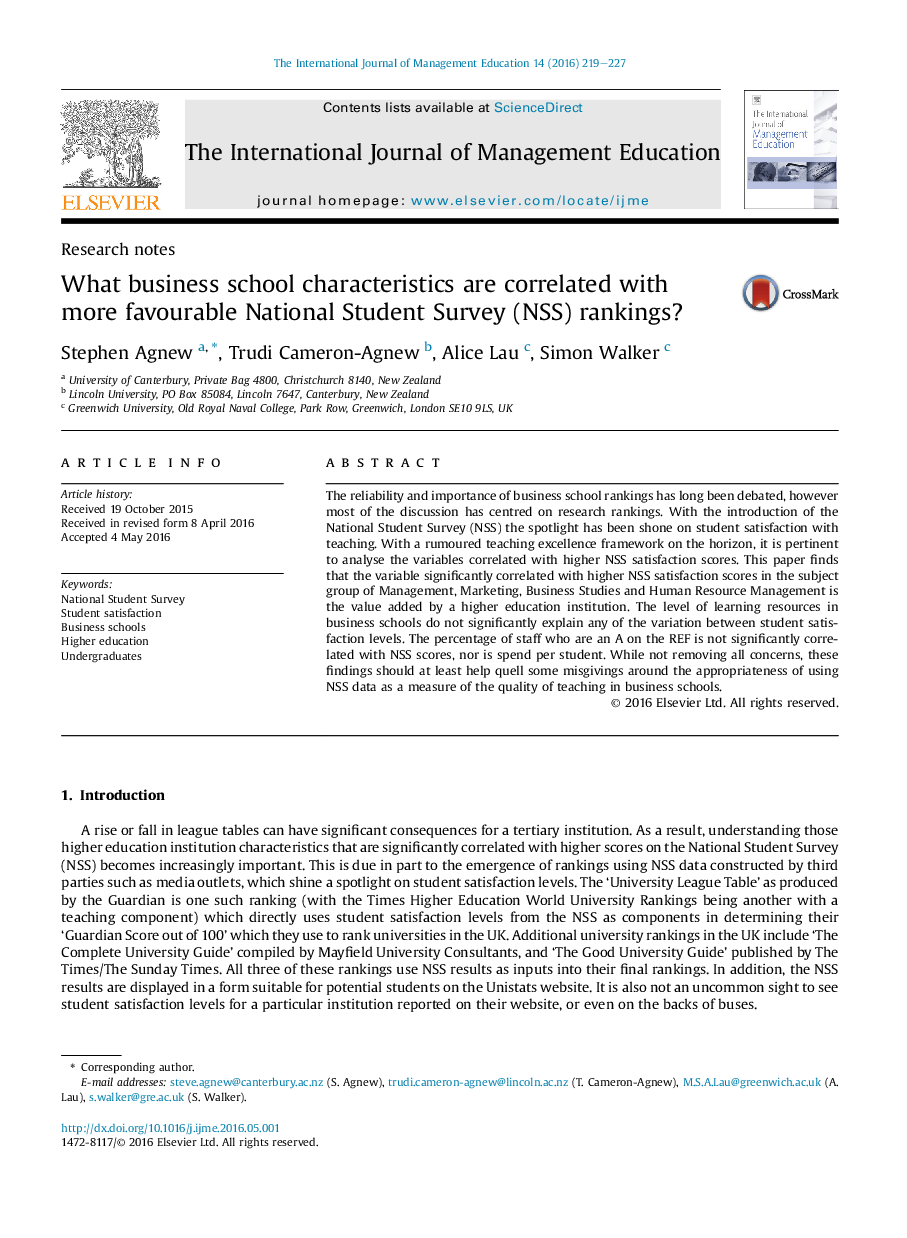| Article ID | Journal | Published Year | Pages | File Type |
|---|---|---|---|---|
| 357300 | The International Journal of Management Education | 2016 | 9 Pages |
•The variable value added is the variable most strongly correlated with higher NSS rankings.•Research excellence framework scores are not significantly correlated with NSS scores.•The variable spend per student is not significantly correlated with NSS scores.•Satisfaction with the level of learning resources appears to be relatively consistent across universities.•The correlation between value added and NSS scores suggests NSS data is suitable for use in a teaching excellence framework.
The reliability and importance of business school rankings has long been debated, however most of the discussion has centred on research rankings. With the introduction of the National Student Survey (NSS) the spotlight has been shone on student satisfaction with teaching. With a rumoured teaching excellence framework on the horizon, it is pertinent to analyse the variables correlated with higher NSS satisfaction scores. This paper finds that the variable significantly correlated with higher NSS satisfaction scores in the subject group of Management, Marketing, Business Studies and Human Resource Management is the value added by a higher education institution. The level of learning resources in business schools do not significantly explain any of the variation between student satisfaction levels. The percentage of staff who are an A on the REF is not significantly correlated with NSS scores, nor is spend per student. While not removing all concerns, these findings should at least help quell some misgivings around the appropriateness of using NSS data as a measure of the quality of teaching in business schools.
